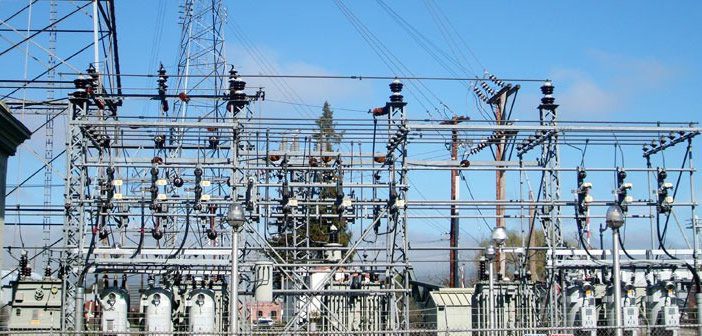National Issues
Without A Doubt, Resolving Nigeria’s Power Crisis Demands Bold New Approach -By Isaac Asabor
Without a doubt, resolving Nigeria’s power crisis demands a bold new approach that combines technical improvements, policy reforms, and innovative solutions to ensure reliable and affordable electricity for all.

It is expedient to recall that the Federal Government towards the end of last year, 2023, specifically in the month of November, made its resolve to adopt a bottom-up approach to tackle the perennial crisis facing the nation’s power sector. The disclosure was made by the Minister of Power, Adebayo Adelabu.
Adelabu, who spoke at the third annual workshop for Power Correspondents Association of Nigeria (PCAN) in Abuja said the new approach was part of the short term strategies being considered to allow the industry to pay attention to those issues that makes it difficult for the different segments in the sector’s value chain to realize their potential.
The minister, who was the special guest said the present administration was determined to provide a reliable and regular supply of electricity to households and businesses in the country.
He said the ultimate goal of the new approach was to ensure that the bottlenecks, from the consumers, up to distribution and transmission infrastructure, that have made it difficult for a significant portion of electricity generated currently not to get to the end users were removed.
Given the foregoing backdrop, it is germane to note that the federal government’s resolve to put an end to Nigeria’s power crisis with a bold new approach, as implied in the minister’s speech at the event cannot in any way be mistaken as it has not been easy for Nigeria to find a lasting solution to the crisis. Without a doubt, it seems that the crisis have over the years remained intractable, particularly as it has defied every policy objectives aimed at resolving it.
In fact, recent events suggest that the situation has become more deplorable than it was given the unprecedented erratic power grid collapses that were witnessed, and which have significantly impacted (and still impacting) on households, businesses, and the overall economy.
In fact, delving into the challenges show that Nigeria has in the recent times, particularly since the new government been led by President Bola Ahmed Tinubu commenced on May 29, 2023, experienced frequent system collapses in power grid, leading to widespread blackouts. On one of such occasions in September 2023, power levels dropped to zero megawatts, affecting the entire country.
Despite being a major oil and gas producer, Nigeria has been struggling to maintain a stable grid. The multiple and persistent collapse of the power grid has been attributed to technical issues. In fact, the situation has become so bad that not more than 50% of the population has access to regular power supply, forcing many to rely on generators and alternative sources.
As gathered, the theoretical maximum power Nigeria could produce is 12,500 megawatts (MW), but it typically generates only a quarter , and it has become so bad that on the day of a recent blackout, power levels reached a mere 273 MW, far below the daily average of 4,100 MW.
Without any scintilla of hyperbole, it is germane to lament in this context that the privatization of the power sector has not met expectations regarding energy availability, affordable tariffs, and prepayment meter accessibility.
To worsen the situation, the government’s removal of fuel subsidies has triggered the high cost of alternative electricity sources, such as generators and inverters, so much so that not a few households and businesses are struggling to survive.
Considering the foregoing background, it is not an exaggeration to opine that the high cost of power resulting from lack of electricity is adding a huge percentage to the cost of everything across markets in the country, and seriously eroding the competitiveness of the economy, even as the chronic power shortages have been reducing the incentive for manufacturing to increase production and create more jobs.
It is not as if the government is literarily folding its hands, and watch Nigerians suffer, but all efforts that have so far been put in place over the years to tackle the crisis are yet to yield results. For instance, the roadmap for power sector reform in 2010 was designed to comprehensively transform the power industry through privatization, raising output to 40,000 Megawatt (MW) by 2020 and attracting investment in the market. Regrettably, the lofty milestones were missed because of the decay occasioned by mismanaging privatization.
All the same, there is still an urgent need for the government to adopt bold approaches toward resolving the crisis.
Firstly, the urgency to review the privatization policy in the power sector should not be dismissed with mere wave of the hands as a comprehensive review of the privatization process is essential. The reason for the foregoing cannot be farfetched as not a few industry watchers are unanimous in their views that the federal government should consider it expedient to commence a review of the operational licenses issued to Generation Companies (GenCos) and Distribution Companies (DisCos) 10 years ago, as the purpose of the privatization has been defeated by what can in this context be dubbed to be “Nigerian Factors”. After all, the licenses granted to operators and players in the power sector under the privatization exercise was designed to last for 10 years, implying that it has 10-year moratorium from November 1, 2013 to October 31, 2023.
In a similar vein, it is been widely suggested that investment in infrastructure in the power sector should be of priority. In this case, there should be an urgent need for upgrading of transmission lines, investment in renewable energy, and improvement in the distribution of networks as they are critical steps to take.
Another critical area that needs top priority in tackling the prevailing power crisis in the country is that of empowering the state governments by allowing them to build their own power plants in order to enhance local energy production. For instance, the 188MW Geometric Power Plant in Aba, Abia State is a significant milestone that promises to transform the energy landscape for its residents. In fact, the benefits that are inherent in the Geometric Power Plant become visible when seen through the prism of the fact that under the Enugu Distribution Company (Disco), Abia receives a mere 11.8% of power from the national grid (approximately 472MW), which must be distributed across the state and neighboring states.
However, the introduction of the Geometric Power Plant’s 188MW is particularly noteworthy, as it significantly bridges the gap in meeting the region’s energy needs. Without a doubt, the Geometric Power Plant represents progress in Nigeria’s electricity challenges and serves as a beacon of hope for improved power generation, transmission, and distribution.
Without a doubt, resolving Nigeria’s power crisis demands a bold new approach that combines technical improvements, policy reforms, and innovative solutions to ensure reliable and affordable electricity for all.



















